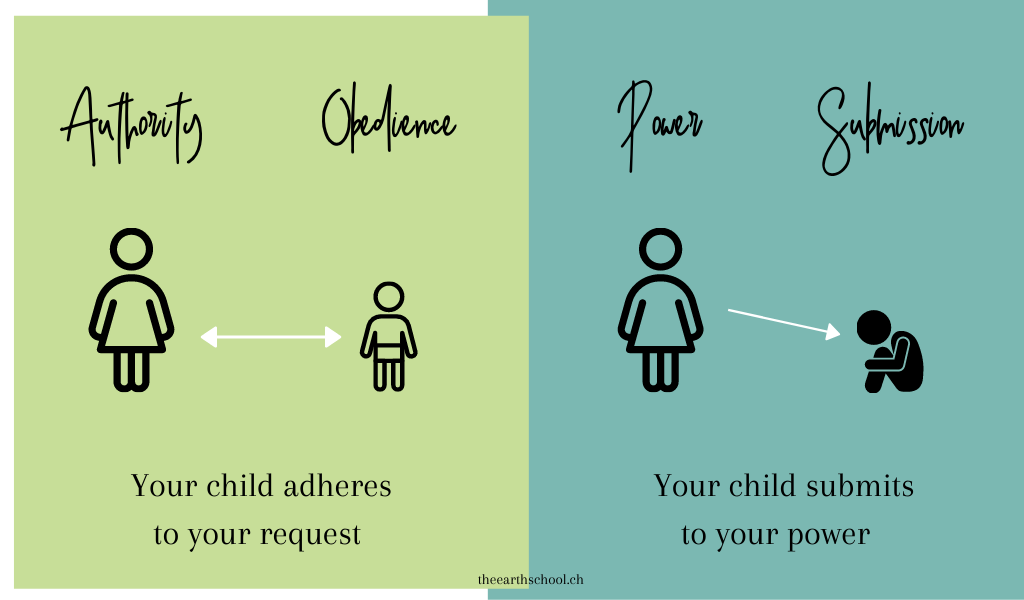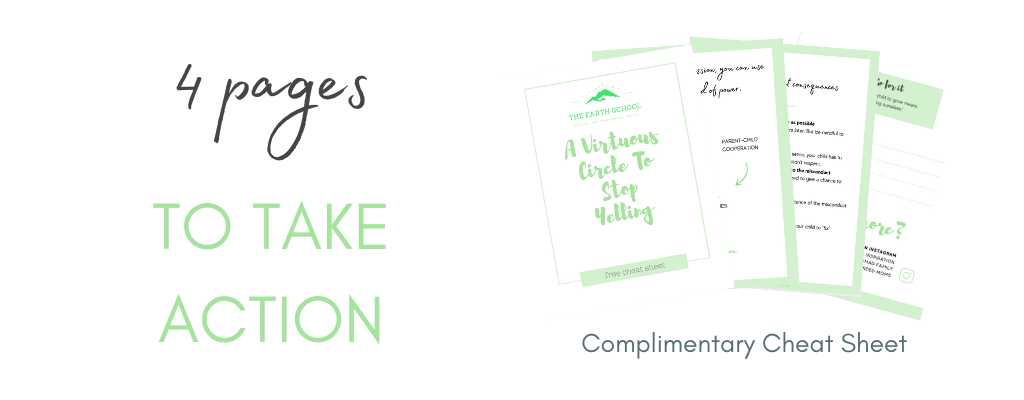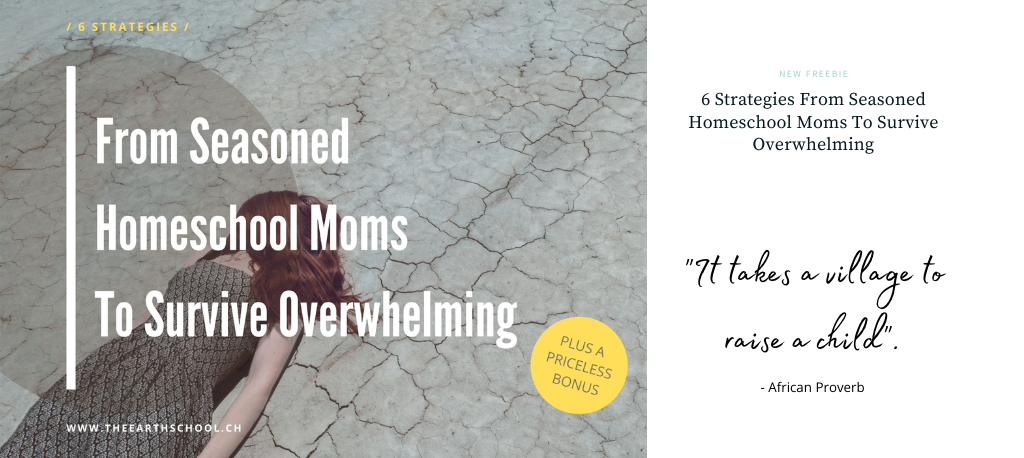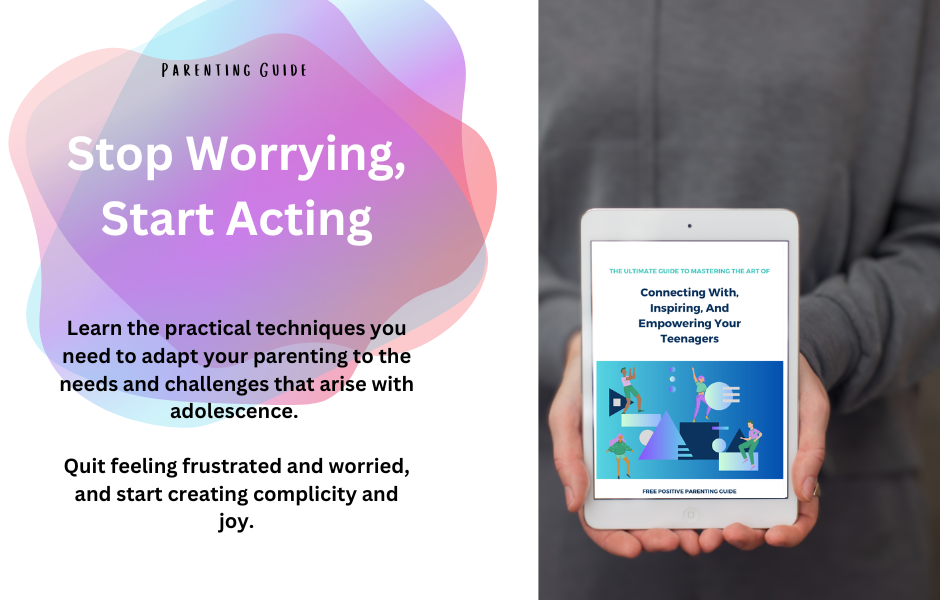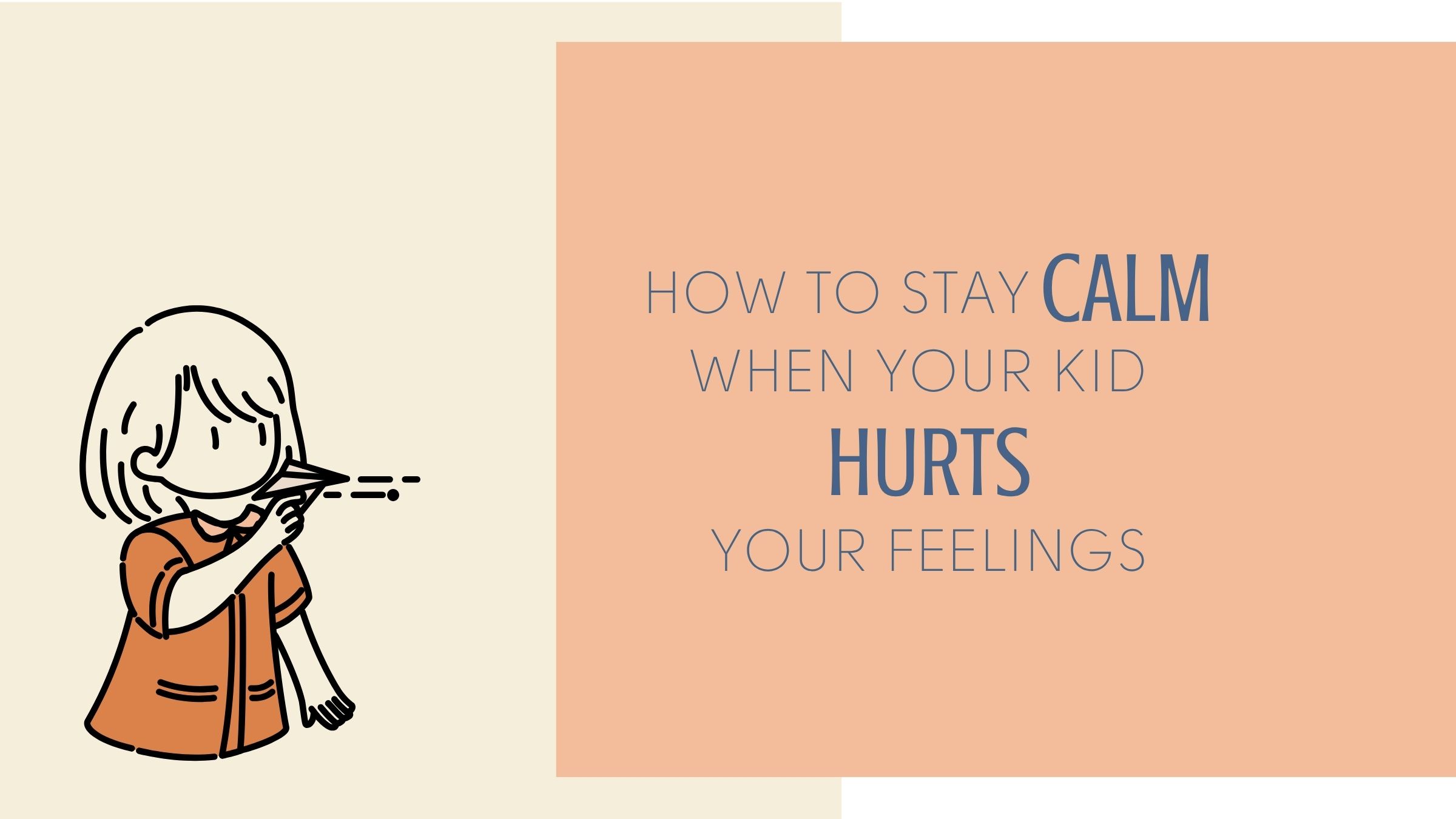
#31 Tired Of Yelling? Learn This Simple Virtuous Circle And Be The Winner
Not A Big Reader? About To Go For A Walk? You can listen to this article here!
Ask any parents’ group what they would change in their parenting habits and the answer is often “yelling”.
When we become parents, we all have an ideal, and this ideal usually doesn’t include getting mad at our children and yelling all day long to get anything done.
Yet, when facing stubborn children, or children who don’t listen, who don’t do as we say, who keep testing and ignoring us, our last resort is yelling. Using the only advantage we think we have over our children: our size and power.
Were you yelling right now and need a rest before continuing? Download the PDF of this article and read it at your leisure!
The Difference Between Obedience And Submission
Daniel Marcelli tells us that nowadays we hear a lot about authority, but little about obedience. And while the first one has a positive connotation, the second sounds rather negative.
Authority calls for obedience. If your goal is not to be obeyed, or if you feel somehow uncomfortable about it, your authority will have little to no effect. What can make it difficult for you is that in our imagination, we sometimes confuse obedience and submission.
We adhere to an authority, while we submit to a power” – Daniel Marcelli
You subdue someone with duress. When you use power, or when you use fear to get what you want from your children, you call for submission.
One day, I heard a friend of mine tell his son “if you wet your trousers, I’ll cut off your dick”. Despite the obvious joking tone, this obviously created a fear in the child. The child fears the punishment and not to be loved anymore if they don’t do what they’re told to.
[Tweet “#positive parenting: #obedience is to authority what #submission is to power”]
On the other hand, obedience is not a negative thing. Because obedience means that your child agrees to join you in your demand. Obedience is a form of cooperation. Your child hears your request, they can tell that it is sensible and they can feel that it is for their own good, hence they are willing to do as you ask.
Do you understand the difference now?
To understand authority, you have to look at it from the perspective of the one who has to obey. You can ask yourself:
- Is my child respected?
- Does the request make sense?
- Is there something for them to gain through obedience?
- Am I making a real request or only trying to submit my child?
Submission empowers the one who makes the other submit. And this can be a source of pleasure, even unconscious. In order to legitimate ourselves, we would like others to agree with us and accede to our requests. Quite vicious, pretty common. Don’t beat yourself up if this feels like something you are doing. You might not have realized that you were. Now you know, and you can change that.
Cooperation Is The First Step To Your Virtuous Circle
As you have now understood, obedience is a form of cooperation between you and your child. You request something, it makes sense to your child (who feels free to say yes or no), and your child answers your request.
I can imagine some of you having second thoughts about the part where the child feels free to say yes or no. If you are in a power-fueled relationship at the moment with your children, this might feel like a big jump in the unknown. I understand.
But this power-unbalanced relationship is exactly why you have to yell all the time. You are using your position as a parent to make your child do as you say. And when your child gets tired of being ordered around all day long, he stops listening, and you start yelling. Have you ever noticed how many orders and expectations you put on your children every day? One day, try to put a mark on a sheet of paper every time you do so. How would you feel in their shoes?
There is a reason why I said earlier that to understand authority, you have to look at it from the perspective of the one who has to obey.

Of course, cooperation doesn’t appear one sunny morning because you decided so. Until now, you have raised your child and taught them to answer in a certain way to your solicitations. They are used to the power struggles and petty fights. In order to change that, you will have to build their trust in your ability to lead them with love, and your trust in their ability to listen when you speak.
A great way to build trust and cooperation is to grow your child’s autonomy. Standing for oneself, making decisions, learning to listen to one’s needs are things that need practice but offer amazing outcomes. Make sure your child gets opportunities to grow their autonomy and you will see how their cooperation will grow as well. A great way to start is with decision-making.
Are you having trouble picturing your children being mature enough for a cooperative relationship?
Clear Boundaries Are The Second Step To Your Virtuous Circle
In order to make room for cooperation, you can set clear boundaries. Children have a natural tendency to wish to please us, and you can help them do so by setting meaningful boundaries.
Of course, boundaries cannot change with your mood or personal agenda, you have to stand by them as much as your children. Cooperation, remember? But if you do what you say, and say what you do, your child will grow their trust and be willing to make an extra effort fo you.
When boundaries are decided together, they become meaningful and it makes them easier for everyone to follow. – Berenice Goin
Remember when I said that children had to feel free to say yes or no? And that some of you might have second thoughts about that? Well, that’s where boundaries come in. There is no need to argue about the yes or no situation when the boundaries are clear. Some things are not to be discussed, while others are. If you want to get more information about clear and healthy boundaries, head here. And remember that for boundaries to work best, they have to evolve with your child.
But what happens when your child doesn’t respect a boundary? How do you end up not yelling again?
The Third Step To Your Virtuous Yelling-Free Circle Is: Meaningful Consequences
Imagine this: you wake one morning and your children are autonomous enough to know what to do by themselves. They don’t whine or get naughty to get your attention because they know you love them unconditionally. They know the boundaries and feel confident in their routine. All is perfect.
Oh, but yes, those are children. They still need to test said boundaries. This is part of their development, they don’t do it to bother you. So what can you do when this happens?
When I was a kid, in the house where my mom used to work, we had a points system. Bad behavior meant points taken, and 0 points meant an hour of sitting down doing some writing. Why is this useless? Because it is like giving an adult a credit card. He’ll keep using it until he’s broke, and once he’s broke, there’s nothing he can do about it.
If people are good only because they fear punishment, and hope for reward, then we are a sorry lot indeed. – Albert Einstein
There is an important distinction to explore first: On one side you have punishments, on the other side, consequences. Punishments are meant to tame children. Generations of parents used corporal punishments to tame their children and make them behave the way they wanted. Often without giving them boundaries first, so that children would sometimes not even know they were doing something wrong.
Remember this yelling-free virtuous circle with our cheat sheet!
Today we wouldn’t hurt our children physically anymore, but would you shame them for instance? (How could you do that to your brother?). There are many ways to hurt a child, and punishments always do.
Consequences are different, first of all, because they are related to a boundary. A boundary that your child already knows (when I started to set clear boundaries with my children, I would stick the paper on the fridge, learn more here). Hence, it makes sense that there should be a consequence. Be careful though, if you don’t set meaningful and adapted consequences, your child will develop a sense of impunity toward rules that will be hard to overcome.
A few tips about consequences:
- They should happen as soon as possible
You shouldn’t wait two hours after your child breaks the rules. But, be mindful to cool down first. Consequences cannot be the result of your emotional reaction. This is how you end up with consequences you don’t follow through with (“you will do the dishes for every meal for a month!”). If you tell your child that the consequence for jumping in the pool is leaving the pool, well, if they jump, you HAVE TO leave. - Remind the boundary
For the consequence to make sense, your child has to understand what boundary he broke. For example, one of your boundary might be to play in the garden, not further away. If your child went out remind them of the rule “you are not allowed to leave the garden without asking mommy first” and then the consequence should be enacted. - Consequence have to be connected to the misconduct
If you want a real impact, you need to give a chance to your child to make a connection. You wouldn’t stop giving pocket money if your child kicked the cat, but you could if he broke a lamp when playing soccer in the living room. - Consequences should be adapted
Take into consideration the importance of the misconduct and the age of the child. Never ask for something that the child is unable to do, you will loose credit and create a feeling of shame in them. - Make the consequence a reparation
This is the GOLDEN RULE for meaningful consequences, to give a chance to your child to “fix” whatever they did. This is much more powerful than a time-out. Your child pushed their little brother? Ask them what they can do to fix this. Your child broke a glass? Ask them to clean up.
Would you like those handy tips in one place? Grab the Cheat Sheet!
Thanks for reading this article! As always, I hope it gave you some line of thoughts to explore as well as ideas to act and create a positive change in your parenting life.

1. Download our cheat-sheet, it’s on the house. Decide on one action you will implement from today and write it down
3. Share this article with a friend who could benefit from it
4. Join us on Instagram for more great content
I wish you all the best with your kids, always remember that we all do the best we can at a given moment, so never judge yourself harshly. Be confident and listen to your intuition. If what you do comes from a place of love, then you’re on the right path.
See you next week for another exciting article!

Do you want more?
Don’t Forget To Join Our Community To Get Inspiration And Tips Straight in Your Mailbox
I wish you all the best with your kids. Always remember — we’re all doing the best we can in any given moment, so try not to judge yourself too harshly. Be confident and listen to your intuition. If what you do comes from a place of love, then you’re already on the right path.

If this post resonated with you — if you’ve ever walked ten paces behind your child, wondering if you’re ruining everything — come join us on Instagram.
It’s where I share reminders, reflections, and the odd parenting confession… for mums figuring it out one heart-twinge at a time.
